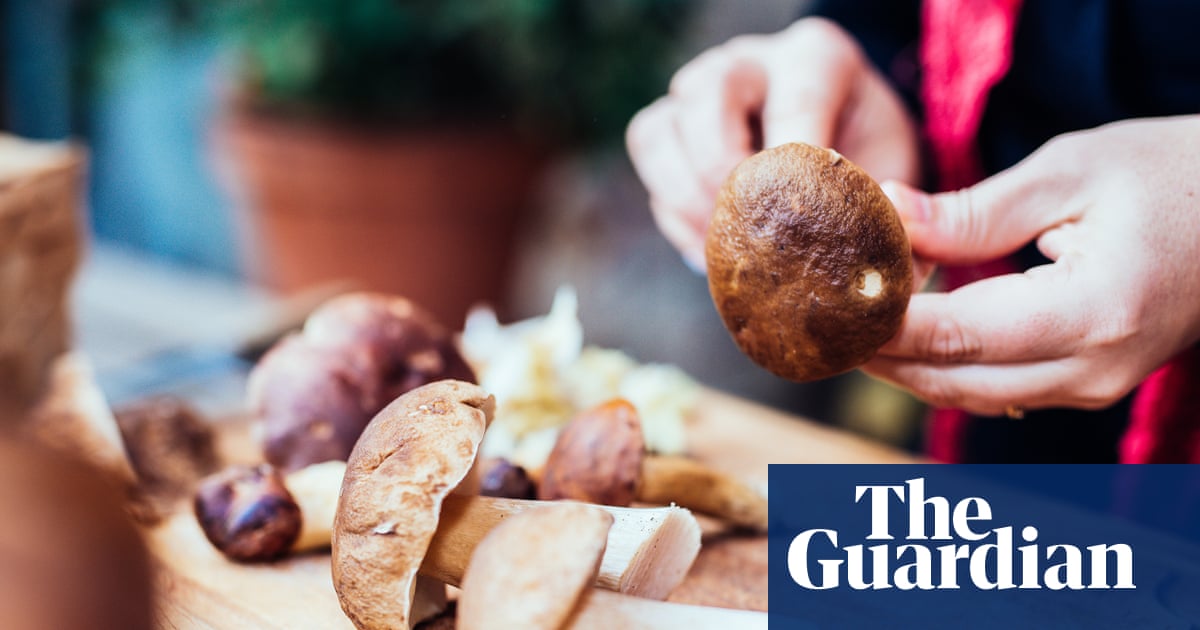
"He cites Harold McGee, who tested this theory in his book The Curious Cook: McGee weighed 252g fresh mushrooms, submerged them in water for five minutes, then removed them, blotted the surface moisture and reweighed them. The result was 258g, which, as McGee noted, is a 16th of a teaspoon of extra water per mushroom. This was after five minutes of soaking, so five to 10 seconds of rinsing under running water is going to make no difference whatsoever."
"Not so fast, though, because Ben Rand, executive chef at Bubala in London, says a pastry brush (or the back of a knife) is the best tool to knock off the dirt, as does Conor Spacey, author of Wasted. Meanwhile, Claire Thomson, author of Mushroom, prefers a piece of dry kitchen towel to rub off any muck. So, clear as mud then. Peeling mushrooms, however, isn't necessary."
"But, Spacey says, if the stalk is thick and woody, do peel the stalk area; and, if the mushrooms are older and sitting in the never to return drawer' in your fridge, throw them a lifeline and peel away the top layer with a small knife. When it comes to the actual cooking, meanwhile, there are so many directions Olivia could go, but Murray's main tip would be to treat mushrooms like a piece of meat:"
There is a long-standing debate over whether mushrooms should be rinsed in water or cleaned dry. Experimental weighing shows that even a five-minute soak adds only a tiny amount of water—about six grams to 252g—so a quick rinse under running water will not waterlog mushrooms. Some cooks prefer brushing or wiping with a pastry brush, knife back, or dry kitchen towel to remove dirt. Peeling is generally unnecessary but helpful for thick, woody stalks or older mushrooms; remove the top layer with a small knife. Cook mushrooms over high heat, treating them like meat to achieve proper sear and flavor.
Read at www.theguardian.com
Unable to calculate read time
Collection
[
|
...
]